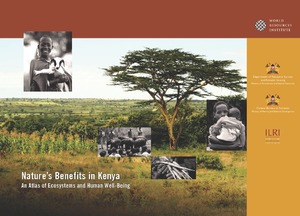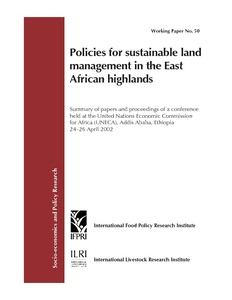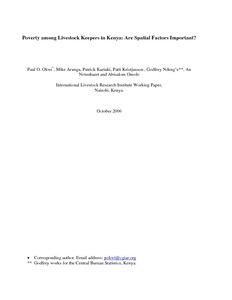Menuju kesejahteraan dalam masyarakat hutan: buku panduan untuk pemerintah daerah
Governments in many countries are decentralising to give more control over decision making and budgets to local administrations. One expectation of this change is that local governments will more effectively and efficiently respond to the poorest citizens in their jurisdictions. Decentralisation is especially significant to forest communities, which have historically benefited little from government services and poverty reduction programmes because of their physical isolation and social marginalisation.
Menuju kesejahteraan: pemantauan kemiskinan di Kutai Barat, Indonesia
Kemiskinan adalah masalah yang persisten di Indonesia. Tujuh tahun setelah dimulainya desentralisasi hanya terlihat sedikit peningkatan pada kesejahteraan masyarakat. Pemerintah daerah telah memperoleh kesempatan dan tanggung jawab baru untuk melaksanakan pembangunan, tetapi hanya beberapa kabupaten saja yang mempunyai kemampuan dan pengalaman yang diperlukan untuk mengurangi kemiskinan secara efektif. Laporan ini menyajikan potret kemiskinan dan kesejahteraan di Kutai Barat, sebuah kabupaten yang baru didirikan pada tahun 1999.
Nature's benefits in Kenya. An atlas of ecosystems and human well-being
This report provides a new approach to integrating spatial data on poverty and ecosystems in Kenya. It is endorsed by five permanent secretaries in Kenya and with a foreword by Wangari Maathai (recipient of the 2004 Nobel Peace Prize). It provides a new approach to examining the links between ecosystem services (the benefits derived from nature) and the poor. Through a series of maps and analyses, the authors focus on the environmental resources most Kenyans rely on such as soil, water, forest, rangeland, livestock, and wildlife.
Pastoralists preferences for cattle traits: Letting them be heard
This paper investigates preferences for cattle traits among a pastoral community in a trypanosomosis prevalent area in Kenya. Choice experiments and mixed logit models are employed to estimate economic values of preferred traits which could be introduced through systematic breeding in breed improvement programs that utilise trypanotolerance trait. The findings suggest preference for traits linked to drought tolerance, high live weight, trypanotolerance and fecundity.
Policies for sustainable land management in the East African highlands
Poverty among livestock keepers in Kenya: Are spatial factors important?
Proceedings of the Workshop on Flood-based Farming for Food Security and Adaption to Climate Change in Ethiopia: Potential and Challenges, Adama, Ethiopia, 30-31 October 2013
Proceedings of the Workshop on Irrigation in West Africa: Current Status and a View to the Future, Ouagadougou, Burkina Faso, 1-2 December 2010
Poverty and forests: multi-country analysis of spatial association and proposed policy solutions
This paper examines poverty and deforestation in developing countries as linked problems and focuses on policies that can favour poverty alleviation in forested regions. The paper encompasses two elements: analysis of the spatial coincidence between poverty and forests, and proposed policy options for reducing poverty in forested areas.




